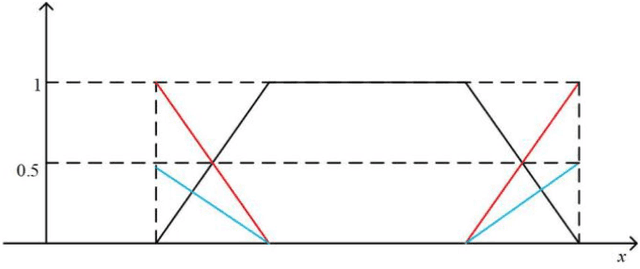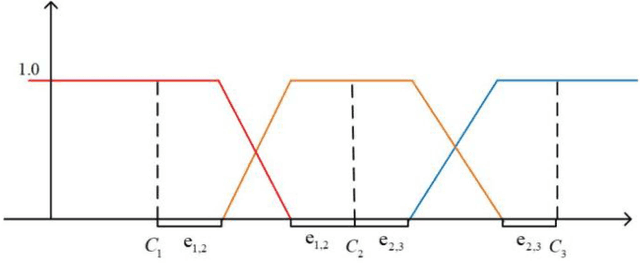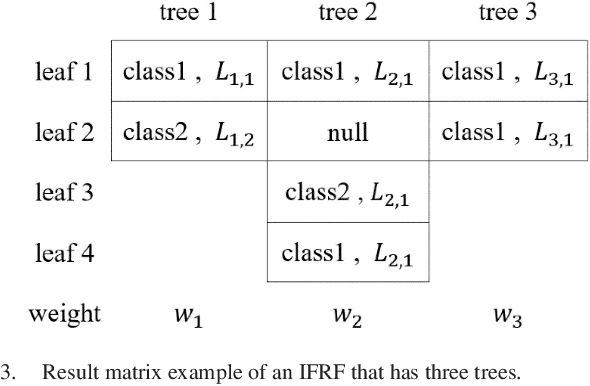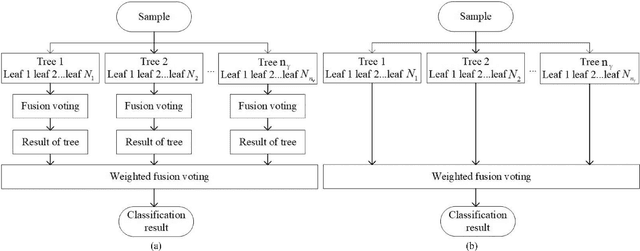Runtong Zhang
FireRescue: A UAV-Based Dataset and Enhanced YOLO Model for Object Detection in Fire Rescue Scenes
Dec 31, 2025Abstract:Object detection in fire rescue scenarios is importance for command and decision-making in firefighting operations. However, existing research still suffers from two main limitations. First, current work predominantly focuses on environments such as mountainous or forest areas, while paying insufficient attention to urban rescue scenes, which are more frequent and structurally complex. Second, existing detection systems include a limited number of classes, such as flames and smoke, and lack a comprehensive system covering key targets crucial for command decisions, such as fire trucks and firefighters. To address the above issues, this paper first constructs a new dataset named "FireRescue" for rescue command, which covers multiple rescue scenarios, including urban, mountainous, forest, and water areas, and contains eight key categories such as fire trucks and firefighters, with a total of 15,980 images and 32,000 bounding boxes. Secondly, to tackle the problems of inter-class confusion and missed detection of small targets caused by chaotic scenes, diverse targets, and long-distance shooting, this paper proposes an improved model named FRS-YOLO. On the one hand, the model introduces a plug-and-play multidi-mensional collaborative enhancement attention module, which enhances the discriminative representation of easily confused categories (e.g., fire trucks vs. ordinary trucks) through cross-dimensional feature interaction. On the other hand, it integrates a dynamic feature sampler to strengthen high-response foreground features, thereby mitigating the effects of smoke occlusion and background interference. Experimental results demonstrate that object detection in fire rescue scenarios is highly challenging, and the proposed method effectively improves the detection performance of YOLO series models in this context.
Closing the Oracle Gap: Increment Vector Transformation for Class Incremental Learning
Sep 26, 2025Abstract:Class Incremental Learning (CIL) aims to sequentially acquire knowledge of new classes without forgetting previously learned ones. Despite recent progress, current CIL methods still exhibit significant performance gaps compared to their oracle counterparts-models trained with full access to historical data. Inspired by recent insights on Linear Mode Connectivity (LMC), we revisit the geometric properties of oracle solutions in CIL and uncover a fundamental observation: these oracle solutions typically maintain low-loss linear connections to the optimum of previous tasks. Motivated by this finding, we propose Increment Vector Transformation (IVT), a novel plug-and-play framework designed to mitigate catastrophic forgetting during training. Rather than directly following CIL updates, IVT periodically teleports the model parameters to transformed solutions that preserve linear connectivity to previous task optimum. By maintaining low-loss along these connecting paths, IVT effectively ensures stable performance on previously learned tasks. The transformation is efficiently approximated using diagonal Fisher Information Matrices, making IVT suitable for both exemplar-free and exemplar-based scenarios, and compatible with various initialization strategies. Extensive experiments on CIFAR-100, FGVCAircraft, ImageNet-Subset, and ImageNet-Full demonstrate that IVT consistently enhances the performance of strong CIL baselines. Specifically, on CIFAR-100, IVT improves the last accuracy of the PASS baseline by +5.12% and reduces forgetting by 2.54%. For the CLIP-pre-trained SLCA baseline on FGVCAircraft, IVT yields gains of +14.93% in average accuracy and +21.95% in last accuracy. The code will be released.
SS-DC: Spatial-Spectral Decoupling and Coupling Across Visible-Infrared Gap for Domain Adaptive Object Detection
Jul 16, 2025Abstract:Unsupervised domain adaptive object detection (UDAOD) from the visible domain to the infrared (RGB-IR) domain is challenging. Existing methods regard the RGB domain as a unified domain and neglect the multiple subdomains within it, such as daytime, nighttime, and foggy scenes. We argue that decoupling the domain-invariant (DI) and domain-specific (DS) features across these multiple subdomains is beneficial for RGB-IR domain adaptation. To this end, this paper proposes a new SS-DC framework based on a decoupling-coupling strategy. In terms of decoupling, we design a Spectral Adaptive Idempotent Decoupling (SAID) module in the aspect of spectral decomposition. Due to the style and content information being highly embedded in different frequency bands, this module can decouple DI and DS components more accurately and interpretably. A novel filter bank-based spectral processing paradigm and a self-distillation-driven decoupling loss are proposed to improve the spectral domain decoupling. In terms of coupling, a new spatial-spectral coupling method is proposed, which realizes joint coupling through spatial and spectral DI feature pyramids. Meanwhile, this paper introduces DS from decoupling to reduce the domain bias. Extensive experiments demonstrate that our method can significantly improve the baseline performance and outperform existing UDAOD methods on multiple RGB-IR datasets, including a new experimental protocol proposed in this paper based on the FLIR-ADAS dataset.
No Re-Train, More Gain: Upgrading Backbones with Diffusion Model for Few-Shot Segmentation
Jul 23, 2024



Abstract:Few-Shot Segmentation (FSS) aims to segment novel classes using only a few annotated images. Despite considerable process under pixel-wise support annotation, current FSS methods still face three issues: the inflexibility of backbone upgrade without re-training, the inability to uniformly handle various types of annotations (e.g., scribble, bounding box, mask and text), and the difficulty in accommodating different annotation quantity. To address these issues simultaneously, we propose DiffUp, a novel FSS method that conceptualizes the FSS task as a conditional generative problem using a diffusion process. For the first issue, we introduce a backbone-agnostic feature transformation module that converts different segmentation cues into unified coarse priors, facilitating seamless backbone upgrade without re-training. For the second issue, due to the varying granularity of transformed priors from diverse annotation types, we conceptualize these multi-granular transformed priors as analogous to noisy intermediates at different steps of a diffusion model. This is implemented via a self-conditioned modulation block coupled with a dual-level quality modulation branch. For the third issue, we incorporates an uncertainty-aware information fusion module that harmonizing the variability across zero-shot, one-shot and many-shot scenarios. Evaluated through rigorous benchmarks, DiffUp significantly outperforms existing FSS models in terms of flexibility and accuracy.
A New Random Forest Ensemble of Intuitionistic Fuzzy Decision Trees
Mar 17, 2024



Abstract:Classification is essential to the applications in the field of data mining, artificial intelligence, and fault detection. There exists a strong need in developing accurate, suitable, and efficient classification methods and algorithms with broad applicability. Random forest is a general algorithm that is often used for classification under complex conditions. Although it has been widely adopted, its combination with diverse fuzzy theory is still worth exploring. In this paper, we propose the intuitionistic fuzzy random forest (IFRF), a new random forest ensemble of intuitionistic fuzzy decision trees (IFDT). Such trees in forest use intuitionistic fuzzy information gain to select features and consider hesitation in information transmission. The proposed method enjoys the power of the randomness from bootstrapped sampling and feature selection, the flexibility of fuzzy logic and fuzzy sets, and the robustness of multiple classifier systems. Extensive experiments demonstrate that the IFRF has competitative and superior performance compared to other state-of-the-art fuzzy and ensemble algorithms. IFDT is more suitable for ensemble learning with outstanding classification accuracy. This study is the first to propose a random forest ensemble based on the intuitionistic fuzzy theory.
 Add to Chrome
Add to Chrome Add to Firefox
Add to Firefox Add to Edge
Add to Edge